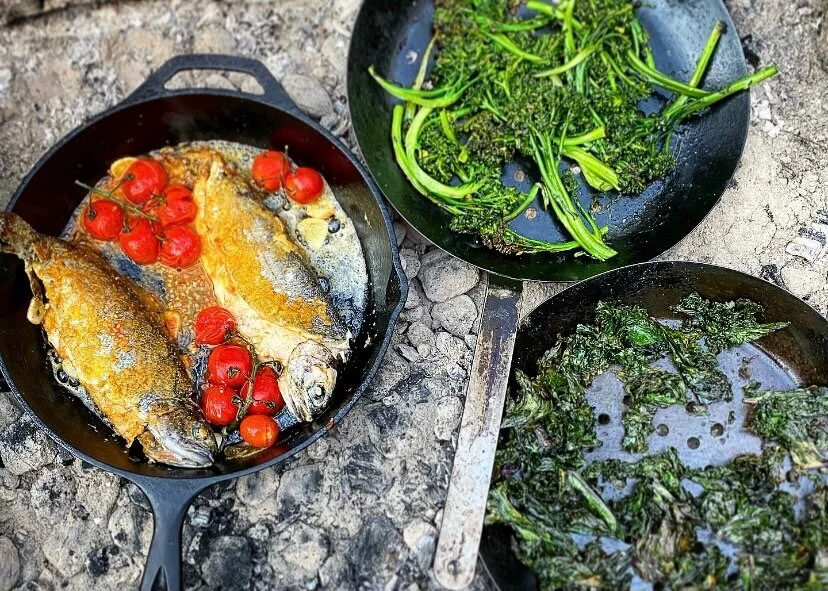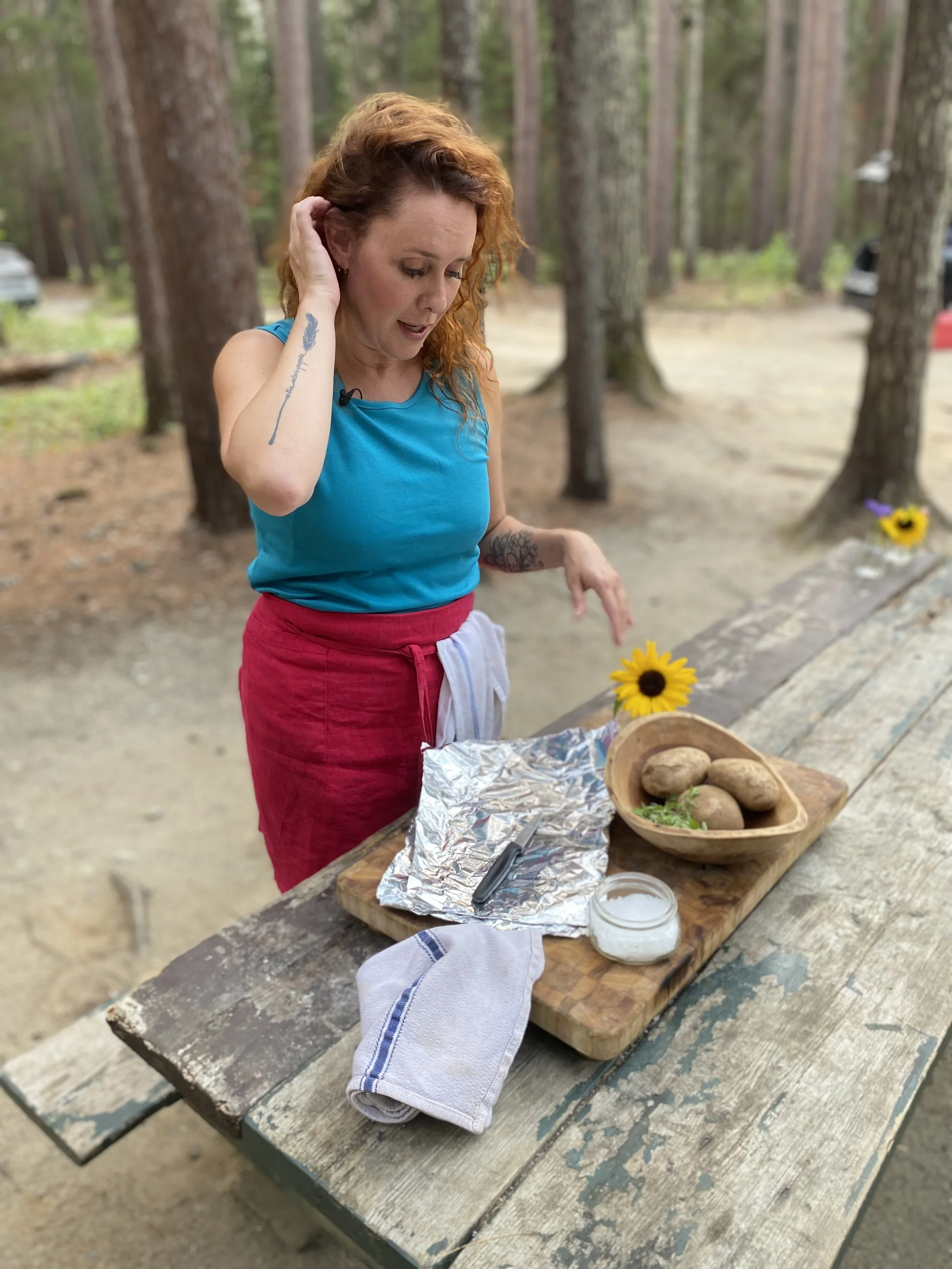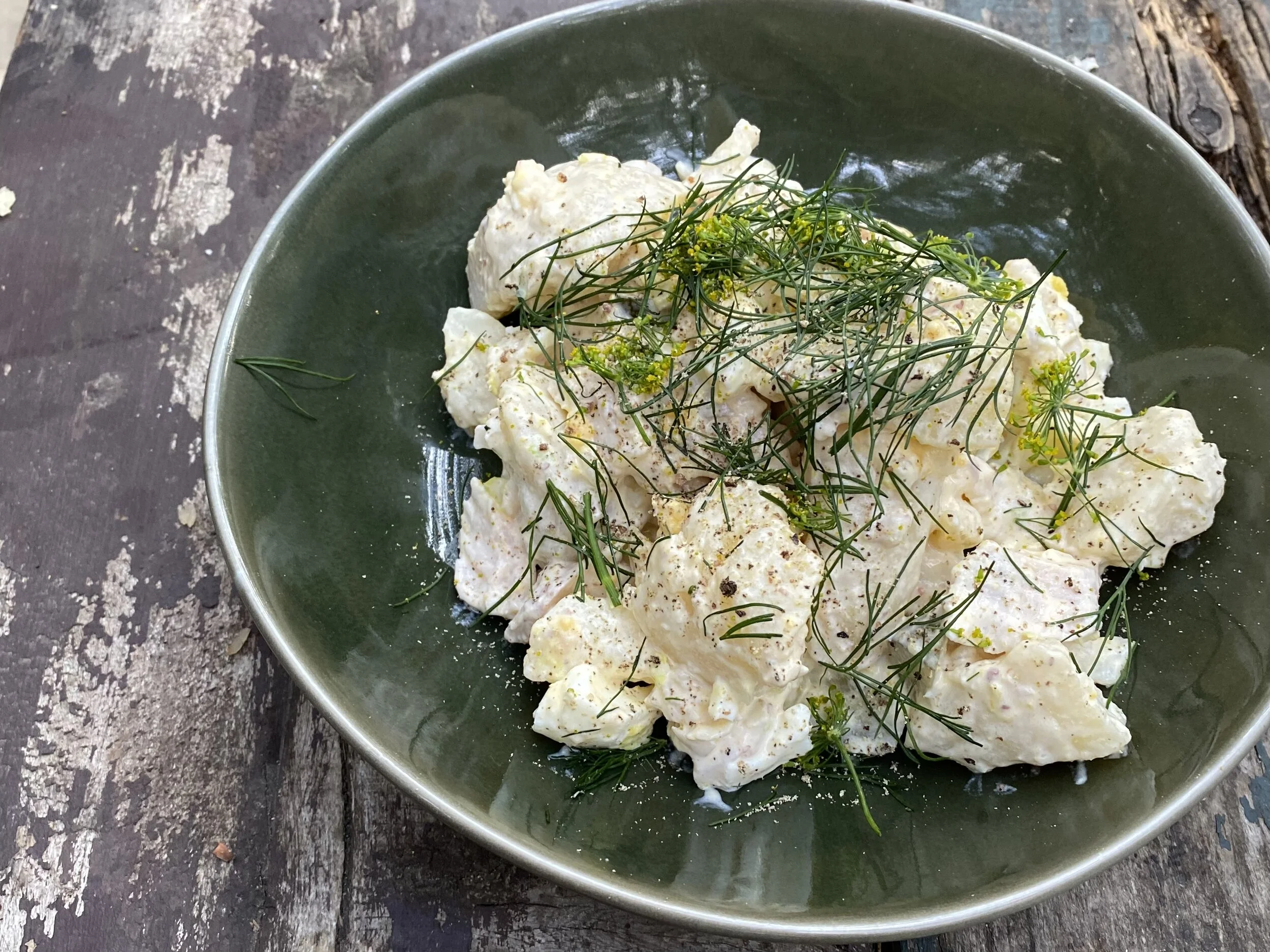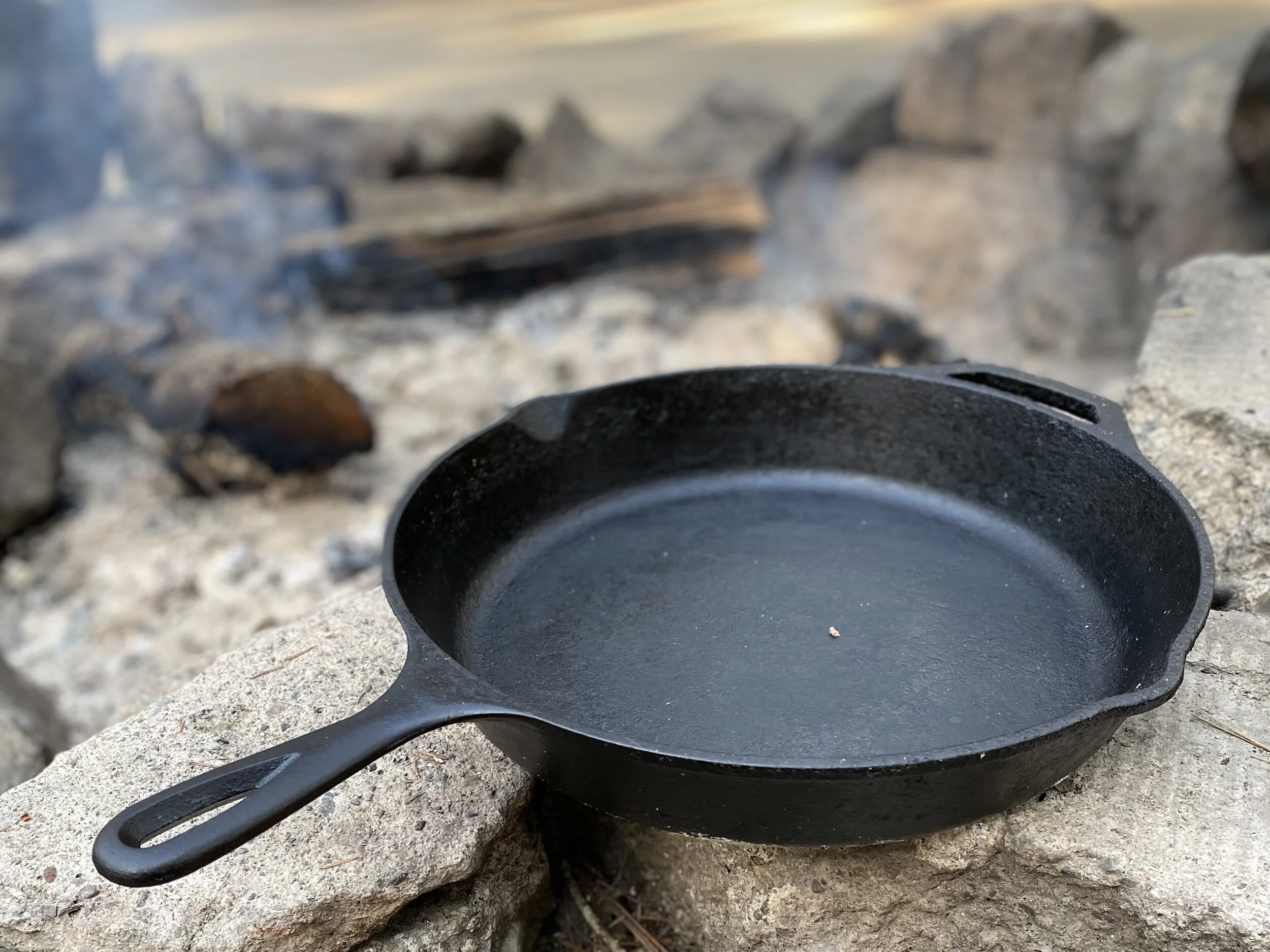Episode 101: Campfire Trout
with charred broccoli & kale, tomato pan sauce and fire baked potato
There is nothing more Maine than cooking fresh fish that you just caught, (or bought), on an open fire. You’ll surely impress everyone at the campsite with this surprisingly easy technique.
Keep scrolling to the Chef's Tip to complete the meal with Fire Baked Potatoes plus what to do with your leftovers and how to properly season a cast iron pan.
Campfire Trout
2 trout, whole & cleaned
½ cup sour cream
½ cup milk or butter milk
1 package cornbread muffin mix
1 Tablespoon hot paprika
To taste salt & pepper
4 Tablespoons canola oil
1 each clove of garlic, crushed
6-8 each cherry tomatoes (“jawbreaker” size)
¼ cup beer (Any type or brand- you can experiment. Wine, especially a Pinot Grigio would also work well in this recipe).
1 knob butter
Method:
First catch a fish, or purchase on from your local fishmonger. Rinse and pat dry fish.
Heat cast iron pan on medium-high heat.
Butcher the fish in to fillets.
Mix the sour cream and the milk together
Combine the cornbread mix and paprika. Season with salt and pepper
Dredge the trout fillets in the milk mixture then the corn bread mix, shake off excess.
Add oil to cast iron and pan fry the fish for 2 min skin side down until the the fish is golden brown. Flip the fish and add the cherry tomatoes and garlic. Blister the skin of the tomatoes then add the beer, be careful for the hot steam! This steam will help finish cooking the fish and mix with the fresh tomato and garlic to create a wonderful sauce for the fish.
Remove the pan from the heat, swirl in the butter and spoon the sauce and tomatoes over the fish. Enjoy!
Charred Broccoli & Kale: Ingredients
1 large head broccoli
1 bunch black kale
Olive oil
Salt & pepper
Method:
Heat oven to 375f or grill to high heat, or campfire!
Season the vegetables with the olive oil and season with salt and pepper.
Roast, grill or go caveman style. The most important thing is there a difference between charred and burnt. Get just enough color on the vegetables so that they have been just “kissed by the flame”.
Chef’s Tip: Fire Baked Potatoes
Ingredients:
4 ea large potatoes (try different varieties, I prefer russet for baking because of their thick skin and fluffy interior)
4tsp coarse sea salt
Fresh herbs
Method:
Place oven on 350f or fire up the campfire
Lay flat some aluminum foil on a cutting board. Place the potato atop the foil and pierce a few times with a small knife.
Sprinkle the salt and herbs on the potato and wrap tight with the foil.
Place in the oven for 1 hour or so. If using a campfire, place on the outside of the hot coals and turn frequently. For both oven and campfire, if a small knife can pierce easily then its done. Serve with copious amounts of butter!!!
Leftovers: Campfire Trout & Potato Salad
Ingredients:
4 each pre-baked potatoes, chilled and peeled
1 cup pre cooked and torn trout (this recipe would work equally as well with salmon, swordfish or shrimp.)
2 each celery stalks, chopped
1 each small onion, chopped
2 each hard boiled eggs, chopped
¼ cup dill pickle, chopped
1 tablespoon whole grain mustard
½ cup mayonnaise
1 each lemon, zest and juice
¼ cup fresh dill, torn
Season salt and pepper
Method:
Add all the ingredients together in large bowl. Gently break up the potatoes. Be sure to not over-mix the potatoes, you want to keep them about the size of a walnut. Season with salt and pepper and enjoy!
Pantry Tip: Seasoning Cast Iron Pans
Method:
Clean your cast iron pan with warm soapy water. Place pan in a low temperature oven to dry and gently heat up.
Remove pan from oven. add a tablespoon of vegetable oil and another tablespoon of kosher salt to the pan.
Using a kitchen towel (that you don’t mind getting dirty), work the salt it to the cast iron pan in a circular motion. The salt will Remove small bits of carbon or food left on the pan, also smoothing out small nicks and scrapes in the metal.
Wipe out and discard the dirty salt and oil. Rinse the pan with warm water and place back into the warm oven. Turn the oven off and leave the pan in there to dry.





